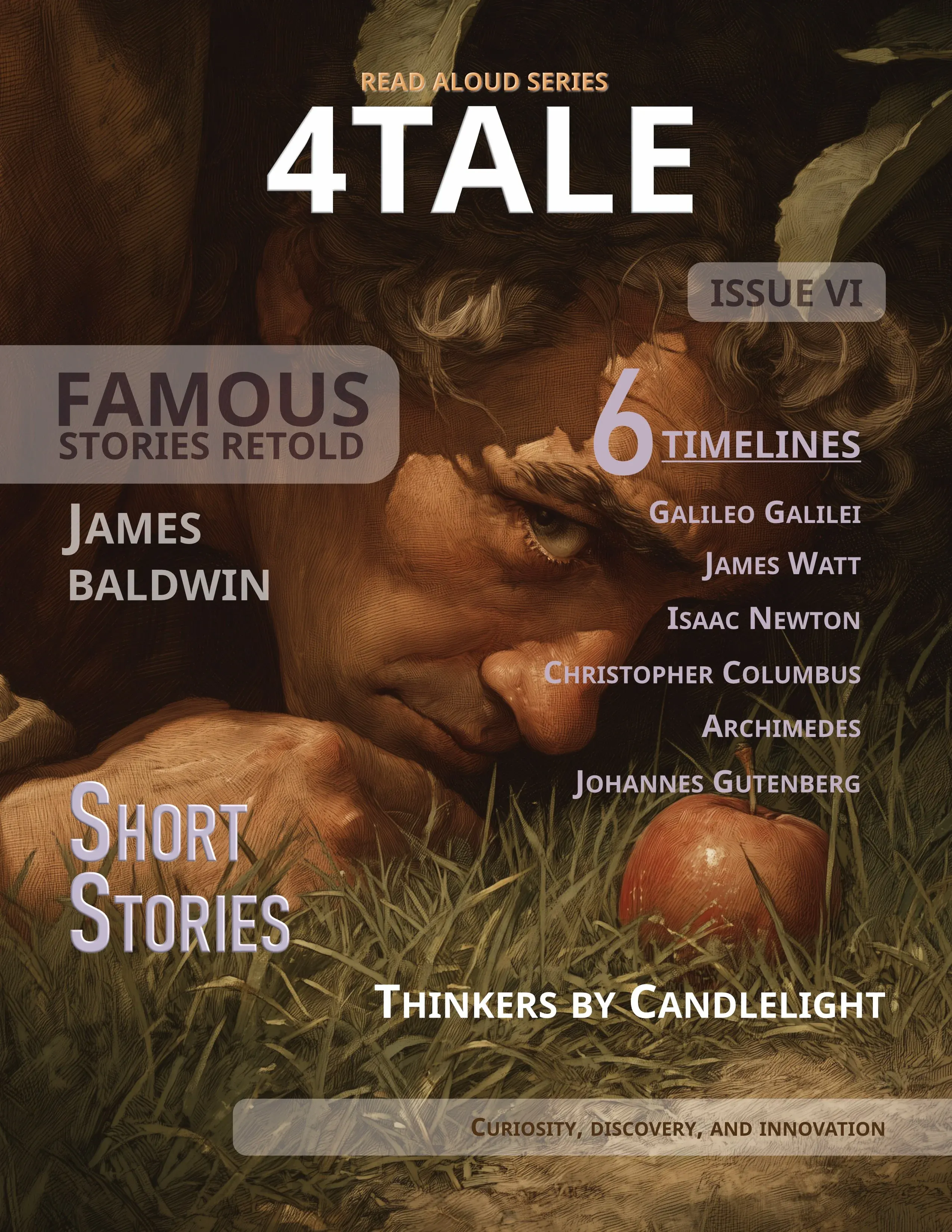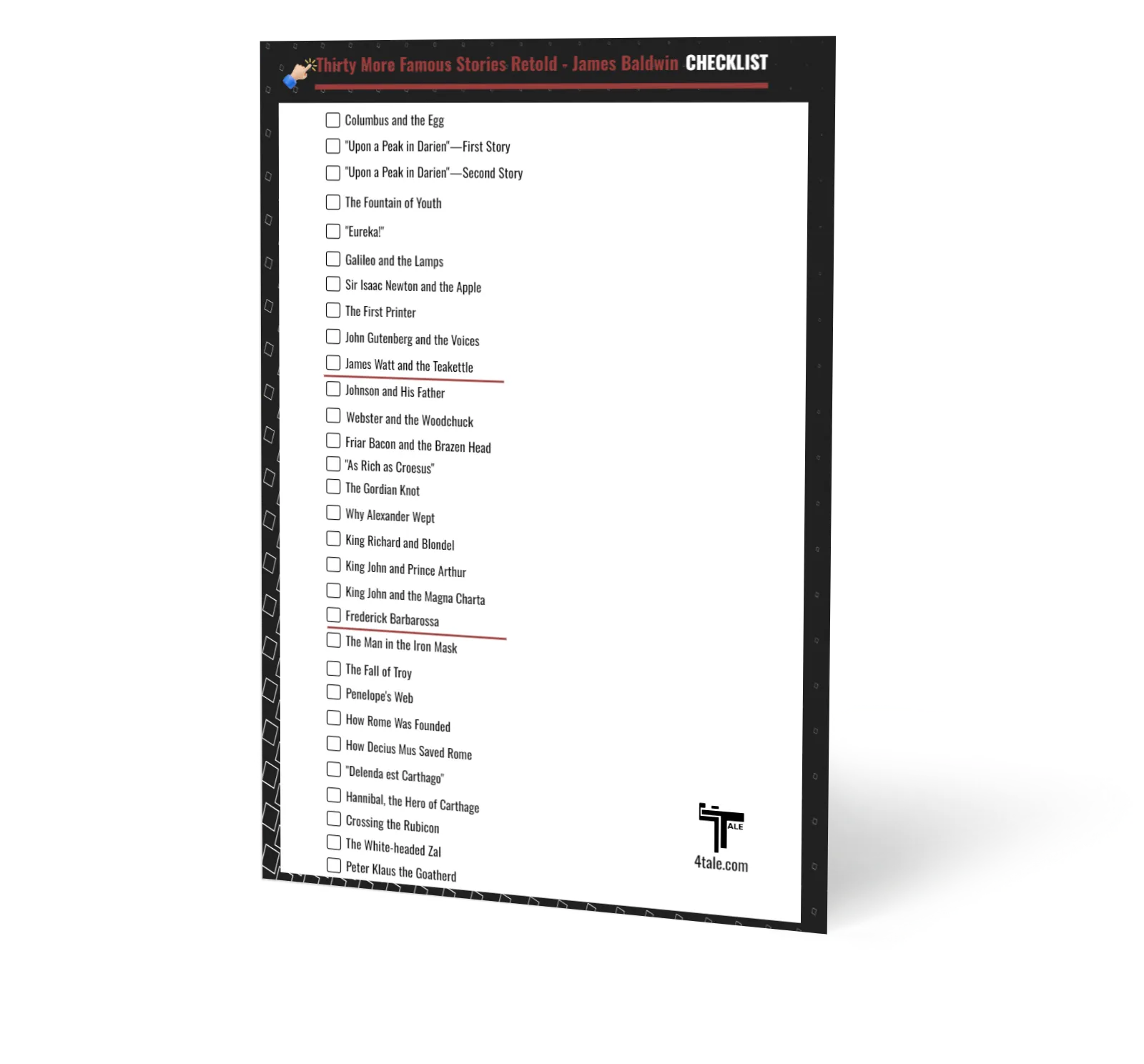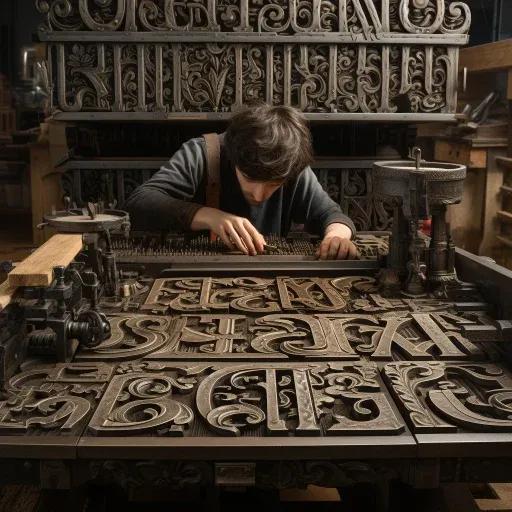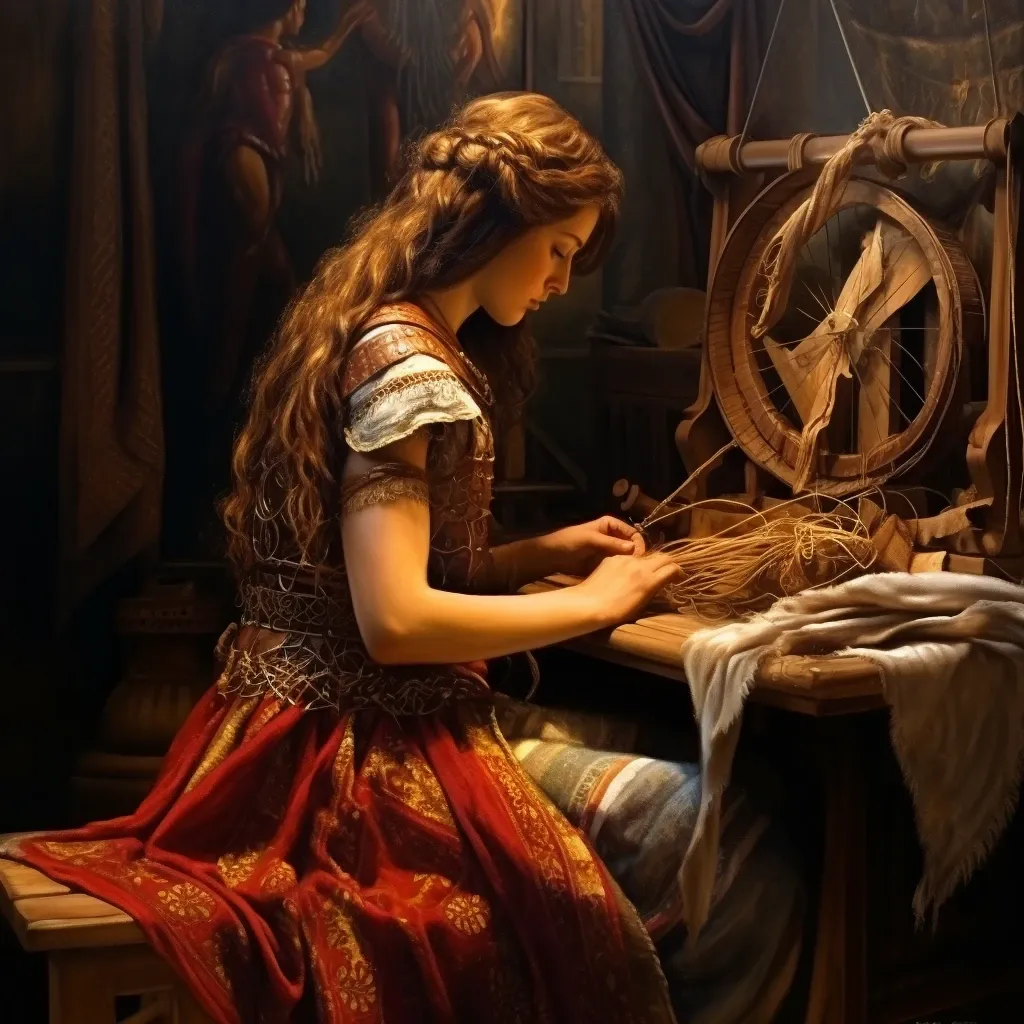BY JAMES BALDWIN
John Gutenberg and the Voices
Famous Stories Retold: Story 9 of 30
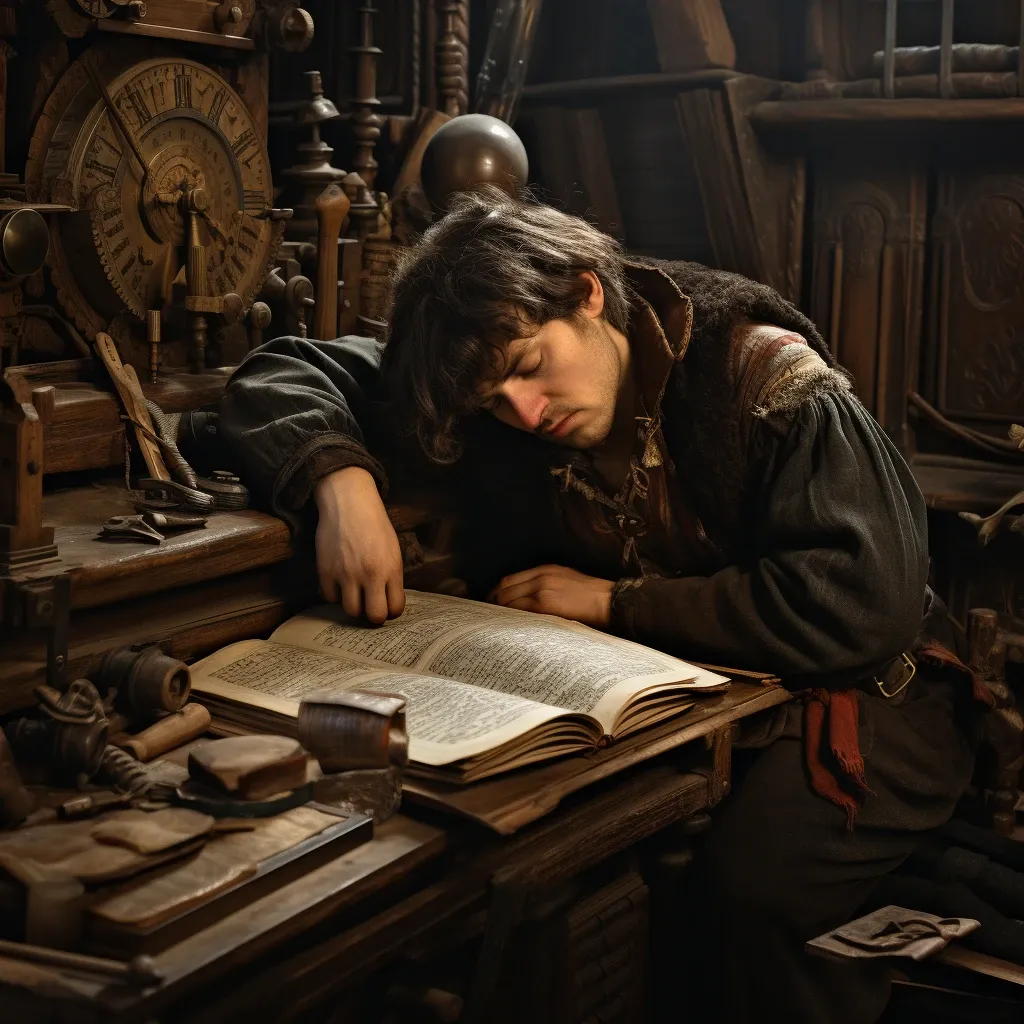
Heading

Voices of Caution and Encouragement: While printing would democratize knowledge, he also worried it might spread harmful ideas.
Dream Realization: Gutenberg struggled with the potential consequences of his invention but ultimately continued his work.
A good book we like, we explorers. That is our best amusement, and our best time killer
- Roald Amundsen, Explorer
Gutenberg's Voices: Shaping History with the Press
In the late evening hours, dutifully laboring at his press, was a man destined to transform the world. This was John Gutenberg, on the cusp of completing his greatest work yet, a Latin Bible. Aided by his invention, the printing press, his craftsmanship would eventually democratize knowledge, bringing literacy within the grasp of the common man. Yet, his journey was not devoid of trepidation and hesitation, as he grappled with the potential misuse of his creation. Join us as we delve into the riveting journey of Gutenberg, his monumental invention, and how it forever altered the course of human history.
The Late-Night Work of Gutenberg
In the dim light of his workshop, a historic scene unfolds. John Gutenberg, engrossed in the final sheets of his monumental task, a Latin Bible, labors tirelessly into the night. Exhausted yet fueled by a sense of accomplishment, he rests his head on the framework of his press, allowing his thoughts to wander. His hours of unrelenting dedication have given birth to a revolution - the invention of the printing press. The man, who will be known as the father of printing, is unaware of the profound impact his creation will have on the world.
The Unexpected Voices: A Debate Emerges
As Gutenberg reflects on his creation, two voices emanate from the types, engaging in a fervent discussion about the potential implications of his invention. The first voice, gentle and encouraging, extols the virtues of Gutenberg's work. It prophesizes a future where books are accessible to all, where knowledge is not confined to the privileged few but spread across the world, ending the age of ignorance. The voice predicts that Gutenberg's name will echo through the ages, symbolizing the dawn of enlightenment.
Dive Deeper 'Timeless Wisdom' Podcast
Video with Captions and Visualizer
The Voice of Hope: Printing for Progress
Amid the soft hum of the press, the second voice emerges. It is stern, but not without a certain charm, offering a counterpoint to the optimism of the first voice. This voice urges caution, warning Gutenberg of the potential misuse of his invention. It brings to light the fact that the press will not only produce good books carrying the words of the wise and virtuous but also print the base and vile, potentially spread falsehoods and immorality. It urges Gutenberg to reconsider, to fully comprehend the power and potential peril of his creation.
The Voice of Caution: Printing as a Potential Curse
The second voice that emerged from the press was a stark contrast to the first. This voice was stern, strong, and filled with caution. It warned Gutenberg about the potential dangers of his invention. While acknowledging that printing would make books more accessible, it also pointed out the possible downside. "The words of the vulgar and the vile will also be printed," the voice warned, implying that this newfound accessibility could lead to the dissemination of harmful and immoral content. The voice urged Gutenberg to consider the repercussions, suggesting that his invention could very well become a curse, not a blessing.
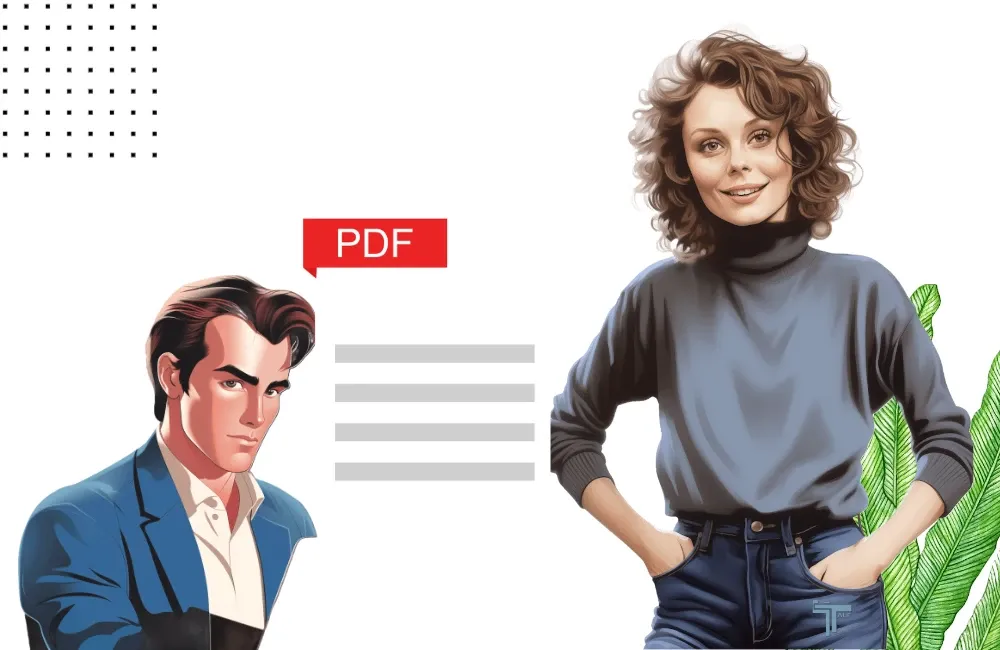
Gutenberg's Distress: The Threat of Destructive Knowledge
Gutenberg was deeply affected by the words of the second voice. The possibility that his invention could do more harm than good filled him with distress. He envisioned the worst-case scenarios - the corruption of innocent minds, the spread of wicked ideas, the potential for his invention to incite evil rather than promote knowledge and enlightenment. Overwhelmed by these thoughts, Gutenberg made a drastic decision. He decided to destroy his press, saying, "It shall not be said of me that I helped to make the world worse."
The Final Voice: A Call for Rationality and Hope
Just as Gutenberg was about to destroy his press, a third voice emerged. This voice was different from the previous two. It was soothing, persuasive, and full of wisdom. The voice advised Gutenberg to pause and reconsider his decision. It reminded him that even the best of God's gifts could be abused, yet they were inherently good. The voice reassured Gutenberg that the power of printing to enlighten the world would far outweigh its potential for harm. The voice urged Gutenberg to continue his work, reminding him of the immense potential of his invention to make the world a better place. Looking around and realizing he had not yet destroyed his press, Gutenberg took a moment to reflect, and in doing so, he found renewed motivation to continue his work.
Conclusion
In our journey through Gutenberg's life, we've seen a man of brilliance grapple with the weight of his invention. The printing press, a source of hope for enlightenment, also bore potential for misuse. Yet, as the voices debated, a final call for rationality emerged, urging Gutenberg to see the greater capacity for good. Gutenberg's inner turmoil embodies the paradox of progress itself, where the power to create also holds the power to destroy. Yet, the voice of hope prevails, reminding us that the ability to enlighten outweighs the potential for harm. Thus, Gutenberg's printing press remains a beacon of human advancement.

